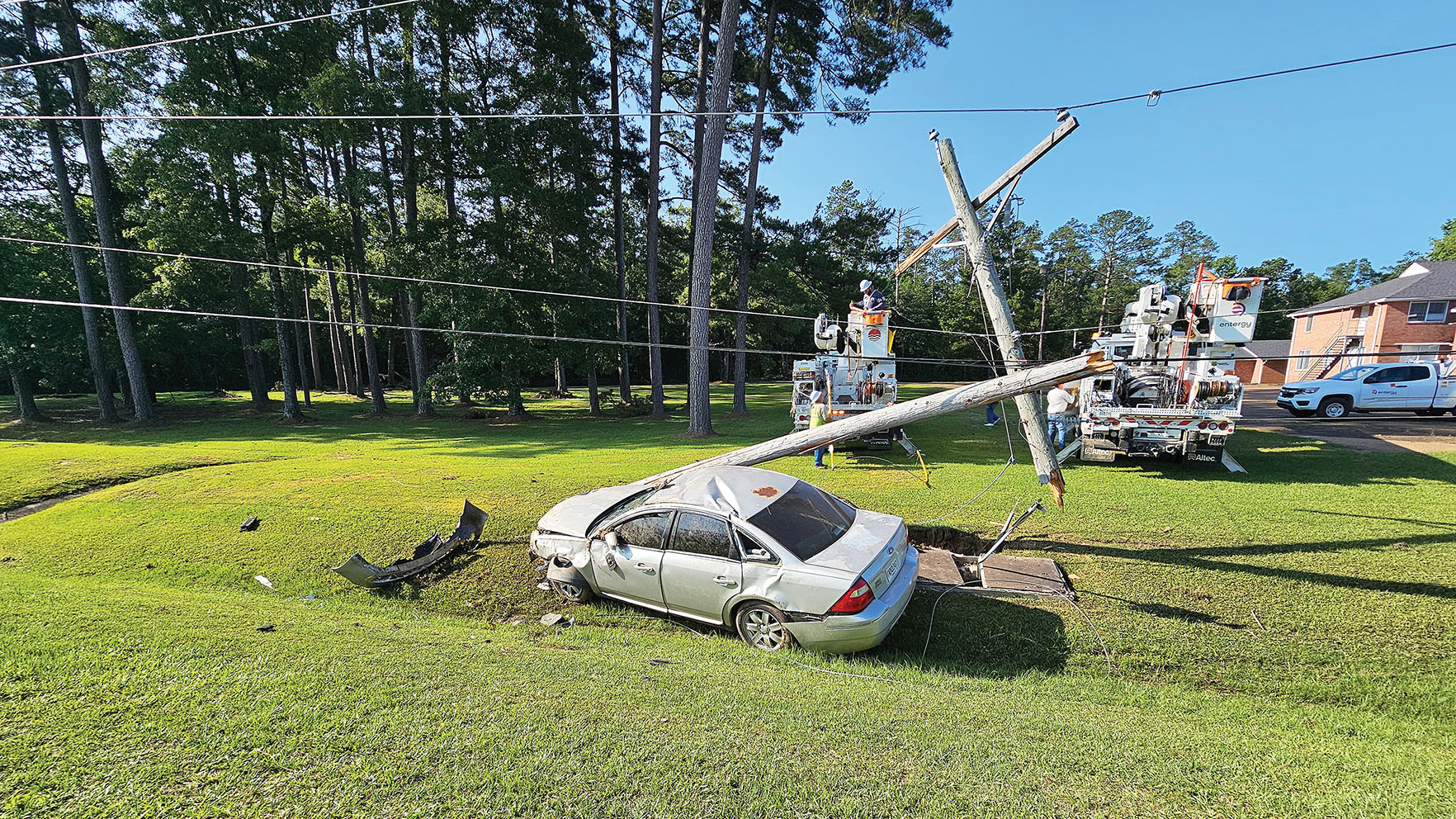Legislators discuss bills’ statuses
Published 10:01 pm Saturday, February 27, 2016
Victories in the law-making process can be long-sought, or a bill may be successful during its first appearance. Making it to the floor for a vote and on to the next chamber certainly qualifies as a win.
“We had several close votes this week, and I look for even more next week,” Sen. Sally Doty R-Brookhaven, said. “The deadline for floor action is this Thursday, and we will be working on the floor each day. This would be a good week to watch the streaming video of the session.”
Both the Senate and House feeds are available online at www.legislature.ms.gov.
“Many bills may not even make it off the calendar and to the floor,” Doty said. “I agree with the lieutenant governor who often advises that if we haven’t had a particular law for the last 100 years, we can surely survive another year without it.”
Of the 27 measures that Doty is the principal author of, 19 so far have died in committee.
Two have passed out of committee: Senate Bill 2580 to make technical changes to the election code and SB 2413 that requires personal responsibility education implementation in middle and high school curriculums. Two others have passed as amended: SB 2211 that makes technical corrections to the trust law and SB 2423 that denotes a candidate’s or elector’s residence may be presumed from homestead exemption.
Four of Doty’s measures have been transmitted to the House, having passed through committee and also the Senate floor. Now the bill goes to the House and must go through committee and then a floor vote there.
SB 2418 provides that domestic violence be grounds for divorce.
“Adding domestic violence as a grounds for divorce passed the Senate floor early in the week,” Doty said. “I explained the bill on the floor and only had a few questions. My colleagues in the Senate are very supportive of this bill, and I expect the House to be as well.”
As chair of elections, Doty filed several bills for the Election Commissioner’s Association. SB 2425 would change the length of training course required for election managers/pollworkers. SB 2684 would authorize election commissioners to receive mileage reimbursement.
“Next week I will handle technical changes to the election code that have been proposed by the Secretary of State,” Doty said. “This is a voluminous bill — 550 pages — so it may involve a lengthy debate on the floor. I have been studying this bill for weeks now so I can walk my colleagues through the bill and answer all of their questions.”
Rep. Becky Currie, R-Brookhaven, is the principal author of 29 measures, of which 21 have died in committee. Bills that are read a third time means they are ready to be voted on when it comes up in order on the calendar. Currie has eight bills that have made it past the first largest hurdles on the way to the governor’s desk.
House bill 553 would increase the penalty for human trafficking.
“My part of it was, if you are arrested and convicted of human trafficking that you can serve up to a life sentence,” Currie said. “If you think that little of somebody — a child or sex slave or any human being — then we need to put you away forever. It sends the message: ‘Don’t come and bring that Mississippi.’”
Human trafficking legislation has been a topic of much discussion this term, with Doty and Currie each having authored multiple bills on the issue.
Doty’s SB 2156 that clarifies offenses against children has been passed on to the House.
“I also handled clarifications to our human trafficking law that easily passed the Senate and should not have any trouble in the House,” she said. “I was a bit disappointed that another human trafficking bill that I authored did not make it out of committee, but I understand that similar language is included in a House bill that is still alive. That bill would provide a more coordinated approach to human trafficking and combine law enforcement and victims services under one umbrella.”
Currie’s House Bill 158, which is to be read the third time, dealing with Medicaid would provide reimbursement to hospitals for long-acting reversible contraceptives outside of APR-DRG.
“There are some Medicaid bills that I hope make it,” Currie said. “Medicaid pays for contraceptives for women such as IUDs — the long acting contraceptives. But they didn’t pay the doctor to put them in.”
This bill would fix that, but Currie knows the battle is only half-won as of yet.
“So it’s kind of a no-brainer, to me, but you just never know.”
The following are to be read the third time:
House bill 168 deals with school athletics and extracurricular activities and would require the State Board of Education to review and recommend revisions for administration for public schools. HB 196 would remove the cap on licensed school nurses with National Board Certification who are eligible for annual salary supplement. HB 933 deals with graduation requirements and would require the State Board of Education to administer an American Civics assessment as part of statewide testing program and for students to pass as a condition of it.
HB 1081 is concerning the tourism project sales tax incentive program and would revise the definition of the term “project” and extend the authority of MDA to approve participants.
HB 1455, which has made it out of committee, would require the Department of Finance and Administration to establish policies that govern the accrual of procurement card rebates. However, there was another bill concerning procurement cards that Currie believed would help tremendously.
“There are 28,000 credit cards in the state used by state agencies, and there has been an increase of $93 million in spending,” Currie said. “The bill was going to clean that up. For the 28,000 cards, we have nobody looking at what’s purchased to make sure they were purchases we needed to make and if they go through the protocols. That’s a real let-down.”
“Sometimes legislation takes a long time,” Currie said. “I’ve worked on some things for the eight years I’ve been here.”







